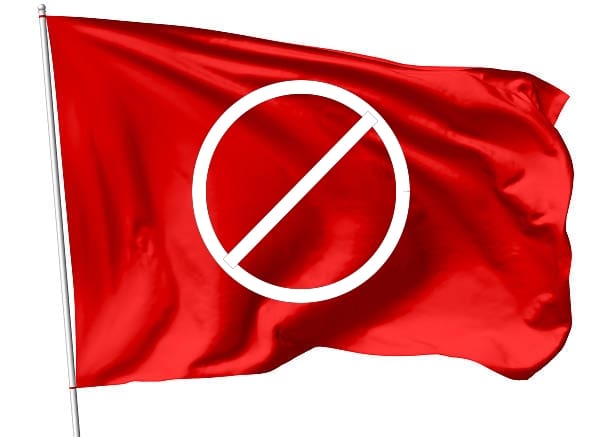What follows is commentary I submitted in response to a column in the Minnesota StarTribune, penned by a police officer advocating a “red flag” confiscation law. I didn’t really expect them to publish it, and they didn’t. My goal in sending it to the Strib was to plant some seeds in the mind of whoever might screen submissions.
Commentary: Red Flag Laws
Colleen Ryan (“This ‘good girl with a gun’ believes it’s time for Minnesota to pass a ‘red flag’ law,” February 28, 2020) should be stripped of her law enforcement certification and criminally charged under 18 U.S. Code § 241. Conspiracy against rights. Since she made a point of ensuring we knew she spoke as a police officer, criminal charges under 18 U.S. Code § 242. Deprivation of rights under color of law may also be in order for her advocacy of a clearly unconstitutional “red flag” law.
What Officer Ryan failed to mention is that everything “red flag” proponents claim to want — to get guns away from those who are a danger to self or others — can already be done under existing laws. Someone who has made an actual threat can be arrested. A judge can make the surrender of firearms a condition of bail, and that can made a part of an ordinary protective order.
This what what Officer Ryan’s “red flag” proposal really does:
- Unconstitutionally eliminates due process before the taking; a judge issues the order before the subject has a hearing. As far back as 1921, the Supreme Court has held that “The due process clause requires that every man shall have the protection of his day in court, and the benefit of the general law, a law which hears BEFORE it condemns” (Truax v. Corrigan).
- Reduces the standard of evidence of danger to unsubstantiated feelings. Real threats are a crime. Real displays of danger to self support action under Minnesota statute § 253B.02(13)(a).
“Red flag” orders take property without giving the target a hearing first, without evidence, and then leave the allegedly dangerous person free to obtain any other dangerous implements.
“Red flag” laws are ripe for abuse. States that have passed them have already seen firearms taken not just from the subject of the order, but also innocent third parties, some not even in the same household.
In Florida, firearms were taken from an innocent man who happened to have a name similar to the order subject. In Colorado, a woman used the “red flag” law to harass a police officer in a dispute. Maryland officers killed a man who was foolish enough to insist that he was supposed to get a hearing before they took his property.
“Red flag” laws also don’t work. In the wake of the Parkland shooting, Florida passed its law and it has been used thousands of times. The result? Both homicide and suicide rates went up.
Officer Ryan has violated her oath “to uphold the constitution of the United States and of the State of Minnesota” to push an unnecessary and abusive act.
I might add that ex parte (the subject doesn’t get a hearing first) “red flag” orders do not meet the 18 U.S. Code § 922 prohibited person criteria, meaning the order cannot be entered into the FBI’s NICS background check system. A person who is subject to a “red flag” order is not a prohibited person and can still go out and buy another gun. A conventional protective order — with a hearing — does do this.
Feel free to share these talking points with other “red flag” advocates.
